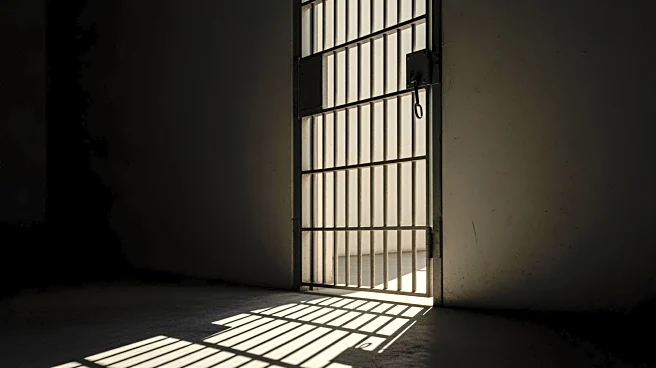What's Happening?
Poland's foreign minister, Radosław Sikorski, has stated that Poland cannot guarantee that Russian President Vladimir Putin's plane would not be forced to land on Polish territory en route to a meeting
with U.S. President Trump. This statement comes amid tensions surrounding an arrest warrant issued by the International Criminal Court (ICC) for Putin, accusing him of illegally deporting Ukrainian children. Poland, a NATO member and ICC signatory, is obligated to arrest and surrender fugitives found in its territory. The potential meeting between President Trump and Putin is set to occur in Budapest, Hungary, which is in the process of withdrawing from the ICC. Hungary has assured that Putin would be able to enter and leave the country safely.
Why It's Important?
The situation underscores the complex geopolitical dynamics in Europe, particularly concerning the enforcement of international law and the ICC's arrest warrant for Putin. Poland's stance highlights the legal obligations of ICC signatories, which could impact diplomatic relations and travel logistics for Russian officials. The meeting between President Trump and Putin is significant as it aims to address the ongoing conflict in Ukraine, with potential implications for peace negotiations. The involvement of Hungary, a country often at odds with EU policies, adds another layer of complexity to the diplomatic efforts.
What's Next?
No date has been set for the Budapest summit, and a pre-summit meeting between U.S. Secretary of State Marco Rubio and Russian Foreign Minister Sergei Lavrov has been postponed. The potential travel routes for Putin to Hungary remain uncertain, with options including passage through Balkan countries or a more direct route over Ukraine. The U.S. may exert diplomatic pressure on countries like Greece and Serbia to facilitate Putin's travel. The outcome of the meeting could influence future diplomatic strategies and the resolution of the conflict in Ukraine.
Beyond the Headlines
The situation raises questions about the enforcement of international law and the role of the ICC in global politics. Poland's potential actions could set a precedent for how countries handle ICC warrants, especially concerning high-profile figures like Putin. The geopolitical implications extend beyond the immediate conflict, affecting EU-Russia relations and the broader international community's approach to war crimes and accountability.









